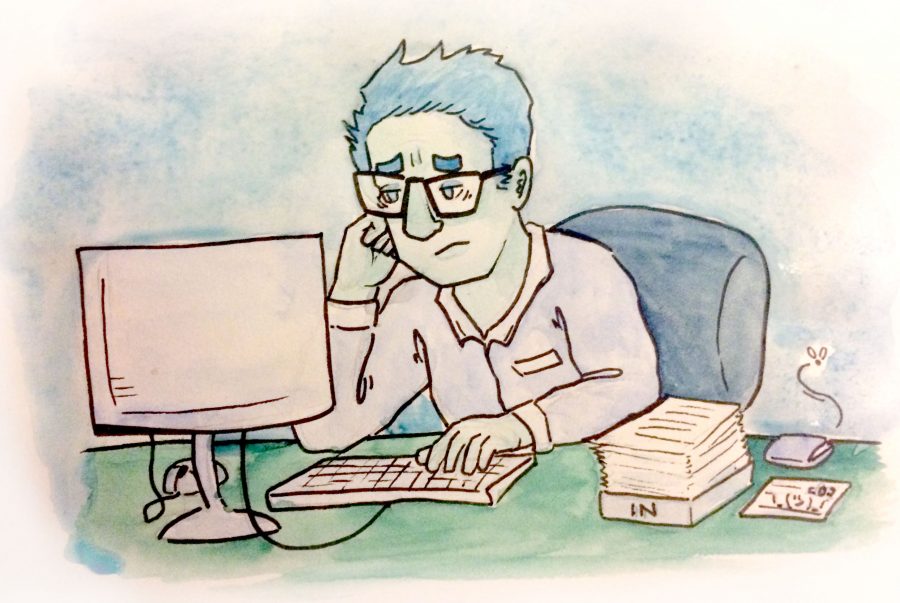It’s summertime in Austin, and that means that students are participating in age-old college traditions: backpacking across continents, soaking up sun on the beach, and working long hours without pay. While some students are able to lock down a paying gig, a good number have to rely on unpaid internships.
The problem with unpaid internships is simple: Not everyone can afford to work for free. More and more often, employers are expecting significant work experience in their field, even for entry-level jobs. This causes many students to work internships out of necessity, rather than desire. I see no problem with students working jobs, but forcing students into working for free sets up a dangerously unequal system. While many wealthy and upper middle-class students can afford to take an unpaid internship, low-income students may have to work multiple jobs to pay the bills or might not be able to work an internship at all. Especially when so many of the most prestigious internships are clustered in a few expensive cities – namely New York City, Los Angeles, San Francisco, and Washington D.C. — this is a very pricey proposition. CNBC reports that the cost of living in Los Angeles for a summer can run upwards of $9,000.
That’s not the only problem. In recent years, many companies have been investigated for violating the U.S. Department of Labor standards for unpaid internships. Common violations include internships lacking in educational experience and being required to work menial labor or directly replacing paid staff members. On top of this, unpaid interns aren’t seen as employees, meaning they don’t get workplace protection under the Civil Rights Act. This has caused a large number of sexual harassment claims by interns to be thrown out in court.
I, like many longhorns, have worked both paid and unpaid internships, and had a good experience each time. During the spring semester alone, hundreds of UT students made the walk down to the Capitol to intern during the 85th Legislative Session, giving them firsthand legislative experience and enhancing their future job prospects. The vast majority of these internships were unpaid.
“My internship was an invaluable experience that allowed me to see the legislature up close and personal beyond what I was learning in class. I was able to see some of the session’s biggest moments firsthand, and even got to help make some of them possible,” government and business sophomore Alden Marshall said.
But despite benefits like this, unpaid internships need to be banned. While this may cut down on the number of available positions for college students, it will also ensure fair treatment. The benefits of internships overall are obvious – students gain valuable networking opportunities, experience, and employers have been shown to hire college students with internship experience at a higher rate. The downsides, however, are too large. America is a country built on the equality of opportunity. Screening out those who cannot afford to work for free only cripples this fundamental promise.
Price is a government sophomore from Austin. Follow him on Twitter @price_zach.


















